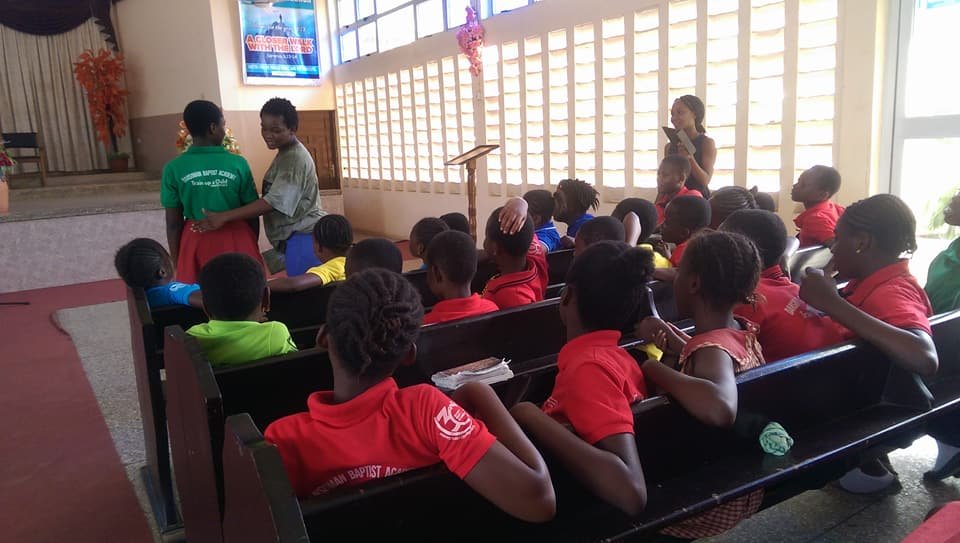
Past Projects
Learn about some of the past projects and campaigns hosted by Yebetumi to advance gender equity
-

Consent Workshops
In partnership with Drama Queens, Yebetumi has run consent workshops in senior and junior high schools in Accra and Cape Coast. In these workshops, we discussed bodily autonomy and bodily rights, what consent looks like, the various ways the abuse of women’s bodily rights have been normalised, how to assert one’s bodily autonomy and seek help if or when one feels endangered, among other relevant issues. The workshops were not only limited to schools, we also run these workshops for selected youth in Accra. Ending gender and sexual based violence requires a sustainable generational shift in narrative and action and that is what our consent workshops aim at doing.
-

Speed Mentoring
Part of our goals for our younger beneficiaries is to show them career possibilities to aspire to beyond marriage, and the jobs typically meant for women. To this end, we have created a mentor pool of highly accomplished professional women from diverse fields of expertise to engage with the girls in hour long group speed-mentoring sessions. The sessions include detailed discussions on how the job is like, educational and social paths to take pursuant of these careers, attitudes to adopt and generally encouraging power worlds to motivate the girls to believe in their ability to achieve such more. In 2018, we added Yebetumi branded exercise books donation to our speed mentoring activities.
-

Sexual and Reproductive Health and Rights (SRHR) workshops
We believe in the rights of women and girls to access age appropriate sexual and reproductive health and rights information and services. Through our SRHR workshops, both in and out of schools, we created safe spaces for adolescent girls to learn and discuss related issues like puberty, menstrual health and hygiene, HIV/AIDS, consent, safe sex, family planning, among others, depending on their ages. Through these workshops, we empowered girls to know and understand their bodies as they grow and have the knowledge and power to make informed choices about their sexual and reproductive health.
-

Menstrual Hygiene and Menstrual Cup Workshops
Aside from our sexual and reproductive health and rights workshops, we have run menstrual hygiene and menstrual cup specific workshops. These workshops were solely dedicated to discussing puberty, menstruation, menstrual cups, and how to safely and effectively use them. We also distributed menstrual cups to beneficiaries who consented to take them.
-

Community Engagements
Being our founding region, Yebetumi organised community outreaches in the Ashanti regions to create awareness on relevant issues such as HIV/AIDS, Breast Cancer which included free breast screening, and community stakeholder engagement on the need for girl child education. These community engagements brought together community leaders, parents and organised community groups.
-

Walk a Mile in Her Shoes Campaign
Recognising the important role men could play in ending sexual and gender based violence (SGBV), we designed a campaign dubbed “Walk a Mile in Her Shoes”. This campaign aimed at bringing men to the table to dialogue on the SGBV as a women’s human rights violation and what they can do to help end it. Activities for this campaign included street interviews with random men for social media campaigns, a placard march on some principal streets of Accra with men in heels and a town hall meeting to discuss the state of SGBV in Ghana and practical ways men can be a part of the solution.
-

Chale Wote Festival Period Campaign
As an internationally acclaimed music and arts street festival, the Chale Wote Festival brings together artists, arts and culture enthusiasts from around the world each year. In 2019, Yebetumi joined a group of menstrual hygiene activists to leverage on this festival to create awareness on menstruation as a normal fact of life and not dirty or an abomination as the stigma around it suggests. We engaged both adult and young men and women, introducing them to various period products and encouraging them to help stop the stigma.
